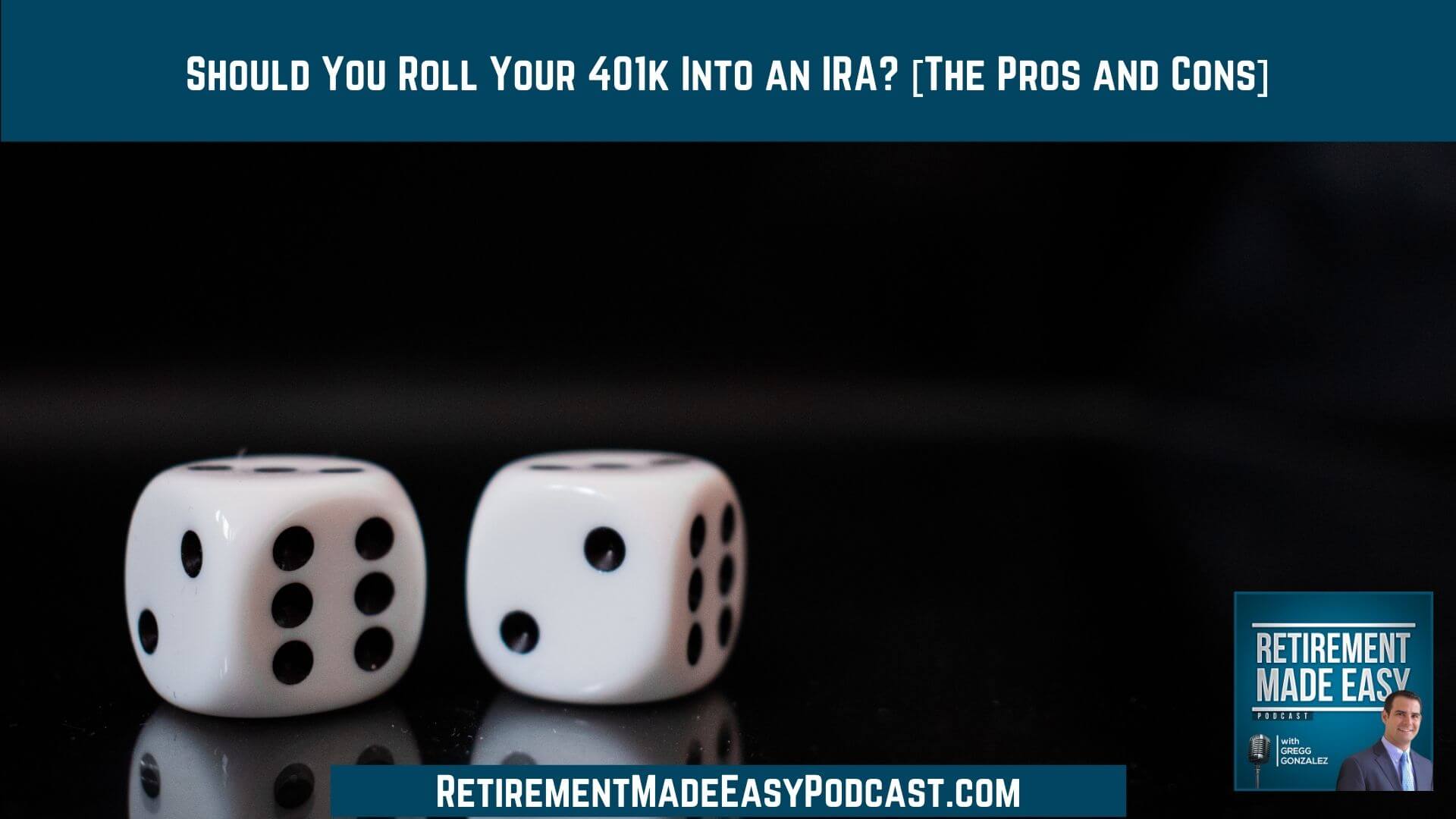
Should you roll over your old 4101k into an IRA? Or should you just leave it where it is? What are the advantages and disadvantages? What should you watch out for? If you’ve recently left an employer, you may be questioning what you should do. So in this episode of Retirement Made Easy, I’ll shed some light on the subject. Hopefully, you can take this information and make a better decision for your retirement.
You will want to hear this episode if you are interested in…
- [4:00] Should you roll over your old 4101k?
- [7:06] Option #1: Leave your 401k where it is
- [10:48] Option #2: Roll your 401k over to an IRA
Rolling over a 401k
The Employee Benefit Research Institute conducted a study in 2018 that found that 41% of 14.8 million people cashed out their 401k and paid the taxes and penalties that applied when they left their job. In most cases, you have a 10% early withdrawal penalty and federal and state taxes. It’s painful to hear that 41% of people cashed out their 401k’s. I think you should leave it where it is—or roll it over into an IRA. Let’s dissect those two options.
Option #1: Leave your 401k where it is
Many 401ks are cost-effective and your fees might be lower if you leave it at your former employer. If low fees are important to you, that might be an advantage. But the #1 reason I’d leave it? If I was separating from my old employer after between age 55 and 59 ½. A special rule dictates that you can leave those funds and withdraw them without a 10% early withdrawal penalty.
So if you retired at age 58, you could take distributions from your 401k without being penalized. If this same person rolled over the 401k into a self-directed IRA, the penalty would apply. Once you reach 59 ½, the 10% penalty to withdraw from an IRA no longer applies. Lastly, if you have a loan from your 401k, you only get 60 days to pay it off when you leave your employer. And, you can’t roll it into an IRA without paying it off first.
Option #2: Roll your 401k over to an IRA
The #1 reason to rollover your 401k is because it gives you more control. You can invest it however you want, whereas most 401ks have a list that you must choose from. Having a wide investment selection is a huge advantage. Secondly, it gives you the ability to work with a financial advisor. If you have a question about your 401k, you dial an 800-number and talk to someone who knows nothing about you and your retirement goals. You don’t get a personal touch.
The next advantage of a rollover is the ability to consolidate your accounts. Many people have an old 401k, an IRA, and it equals too much going on. It’s hard to make sure they’re all invested properly. But if you roll over your 401k into an IRA, you can consolidate your accounts.
You can also bring a Roth IRA into the picture. Not many 401ks offer a Roth 401k. Having that available can be valuable. Lastly, with many 401ks, they only allow you to list a single primary beneficiary. You can’t list contingent beneficiaries—but a rollover IRA allows you to.
Having choices is the most important thing that I can think of. If a bagel shop has 29 different varieties, I can find something I like. If they only have three options, I might have to settle for something I don’t want. You want a portfolio that’s aligned with your goals. Which one of these options does that for you?
Resources & People Mentioned
Connect With Gregg Gonzalez
- Email at: Gregg@RetireSTL.com
- Podcast: https://RetirementMadeEasyPodcast.com
- Website: https://StLouisFinancialAdvisor.com
- Follow Gregg on LinkedIn
- Follow Gregg on Facebook
- Follow Gregg on YouTube



